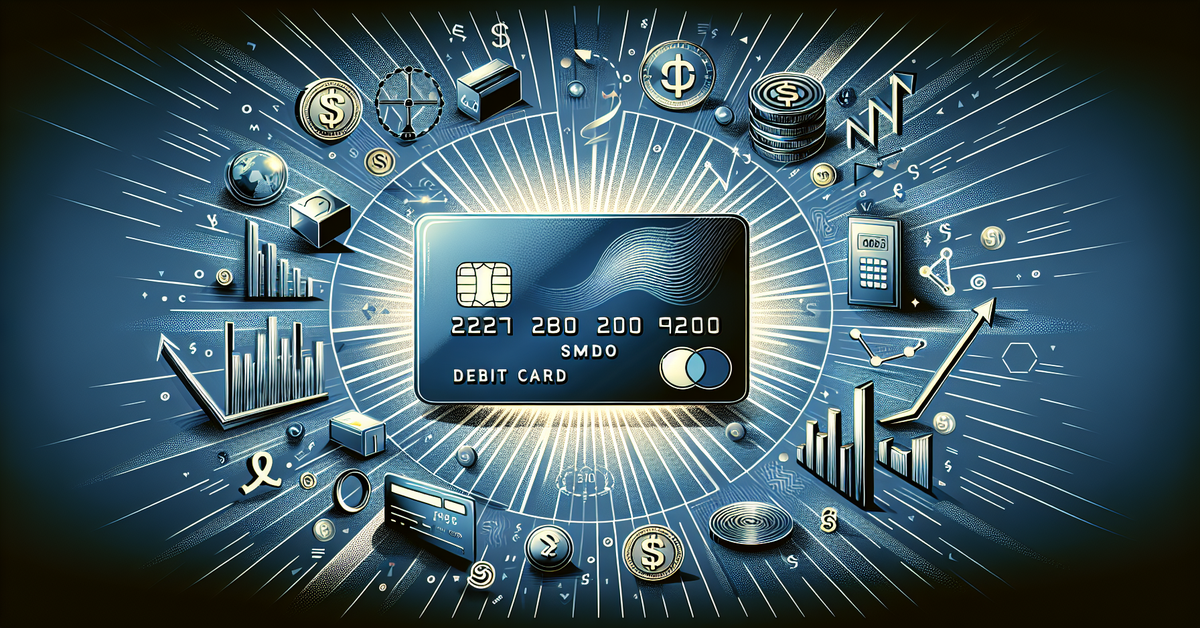If you're looking for a more streamlined way to handle transactions, you might find yourself wondering about pinless debit cards. These cards allow you to make purchases without entering a personal identification number, making the checkout process quicker and often more convenient, especially for online shopping. However, while they offer several advantages, there are also important considerations regarding security and usage. What makes pinless debit cards stand out, and are there potential drawbacks you should be aware of?
Definition of Pinless Debit Cards
Pinless debit cards are a convenient payment option that allow you to make transactions without the need for a PIN, simplifying your purchases. These cards function similarly to traditional debit cards but eliminate the requirement for a personal identification number, making them particularly useful for quick transactions. You can use them for online shopping, bill payments, or in-store purchases where speed is essential.
While they provide ease of use, it's important to prioritize security. Since PIN entry is not required, you should verify your card is always secure and monitor your account for unauthorized transactions. Understanding how to manage these cards effectively can enhance your shopping experience while maintaining a focus on safety and fraud prevention.
How Pinless Debit Cards Work
You can think of pinless debit cards as streamlined payment tools that leverage existing debit card infrastructure to facilitate transactions without needing a PIN. When you make a purchase, the card connects directly to your bank account, allowing funds to be transferred instantly. The transaction process typically involves swiping or tapping your card at a point of sale, or entering your card details online. This method reduces the risk of PIN interception or theft, enhancing safety. Additionally, during transactions, your card information is encrypted to protect against fraud. While you're not required to enter a PIN, it's still essential to monitor your account regularly for any unauthorized transactions, ensuring your financial security remains a top priority.
Advantages of Pinless Debit Cards
One major advantage of pinless debit cards is their convenience, allowing for quick transactions without the hassle of remembering or entering a PIN. This speed can be particularly beneficial in busy environments, such as grocery stores or gas stations, where every second counts. Additionally, since you don't need to input a PIN, you reduce the risk of someone stealing your PIN through shoulder surfing or other methods. Pinless transactions can also enhance security by limiting the information shared at the point of sale. With the added benefit of online and mobile purchases, pinless debit cards provide flexibility and ease of use. Overall, they combine convenience and safety, making them an attractive option for many consumers.
Disadvantages of Pinless Debit Cards
While pinless debit cards offer convenience, they come with several disadvantages that consumers should carefully consider. One major concern is the potential for overspending. Without a PIN, it's easier to make impulsive purchases, which can lead to financial strain. Additionally, pinless transactions often lack the same level of transaction limits that traditional debit cards have, potentially increasing your risk of unauthorized charges. You might also find that not all merchants accept pinless debit cards, limiting where you can shop. Moreover, if your card is lost or stolen, the ease of use without a PIN could make it more vulnerable to fraud. Weighing these factors is essential before opting for a pinless debit card.
Security Features and Concerns
Given the convenience of pinless debit cards, it's important to examine their security features and the potential concerns that arise from their use. While these cards offer easy transactions, they may also expose you to certain risks. Here are some security features and concerns you should be aware of:
- Fraud Detection: Many issuers use advanced algorithms to monitor for suspicious activity.
- Encryption: Transactions are often encrypted to protect your information during processing.
Despite these measures, pinless debit cards can be vulnerable to fraud, especially if your card information is compromised. Always stay vigilant and monitor your account regularly.
Comparing Pinless and Traditional Debit Cards
Pinless debit cards and traditional debit cards serve similar purposes, but they differ markedly in transaction processes and security measures. Traditional debit cards require a PIN for verification during in-person transactions, which adds a layer of security but may pose risks if your PIN is compromised. In contrast, pinless debit cards streamline purchases by eliminating the need for PIN entry, making transactions quicker and more convenient, especially for online shopping.
However, this convenience comes with potential risks. Without a PIN, fraudsters may have an easier time accessing your funds if they obtain your card information. Ultimately, while both types of cards offer unique advantages, consider your spending habits and security needs before choosing the right option for you.

